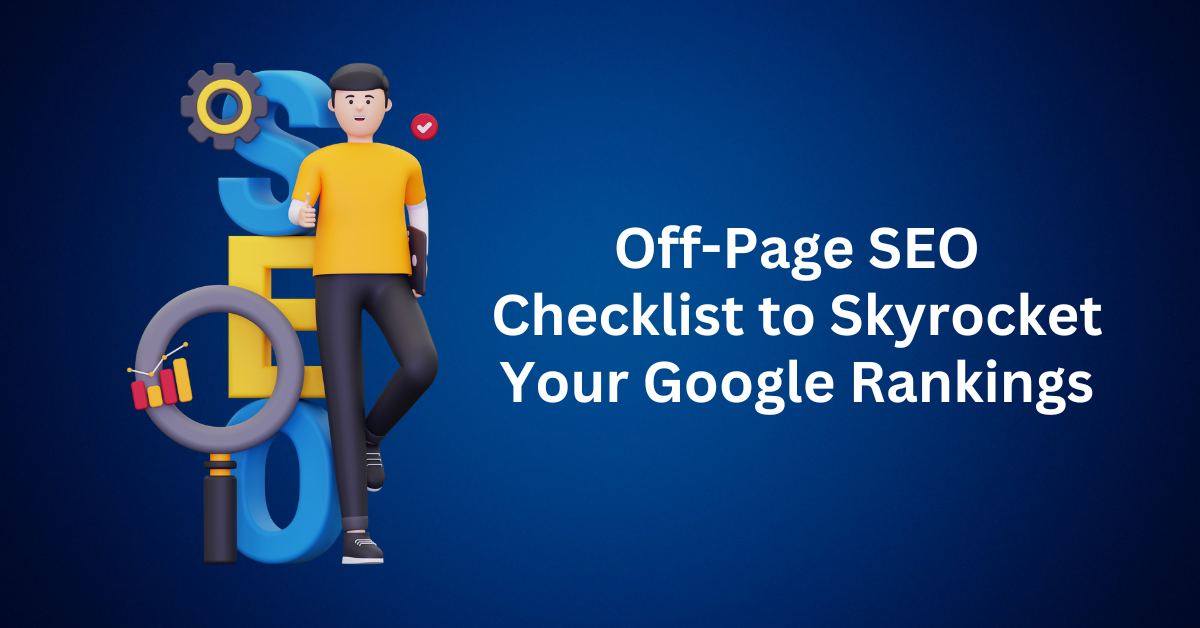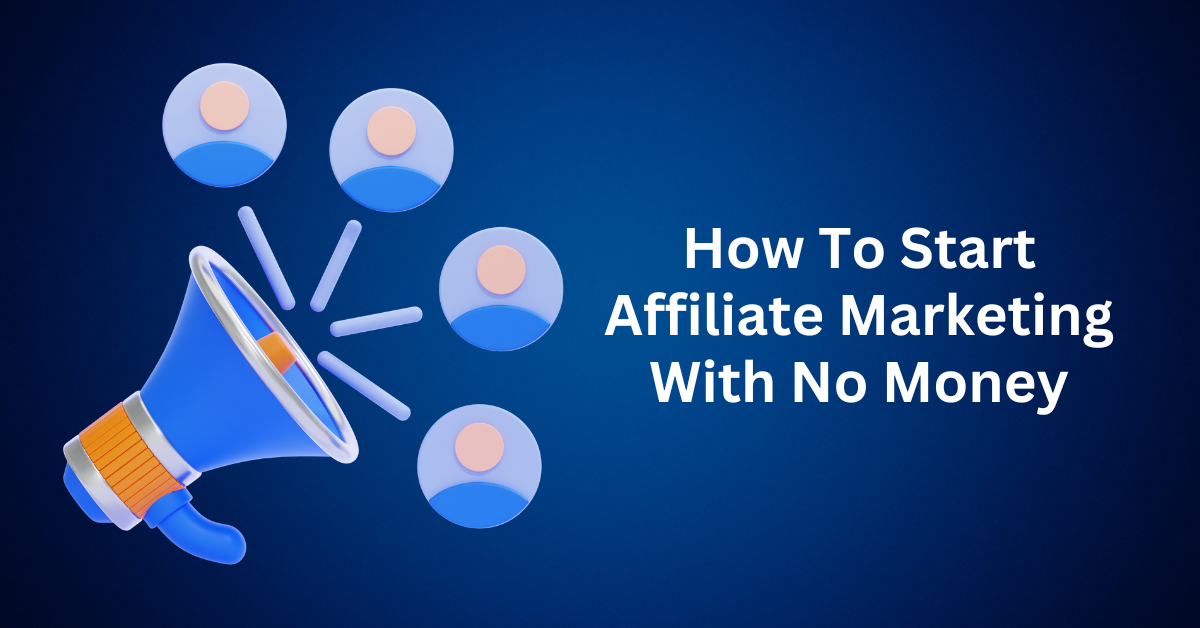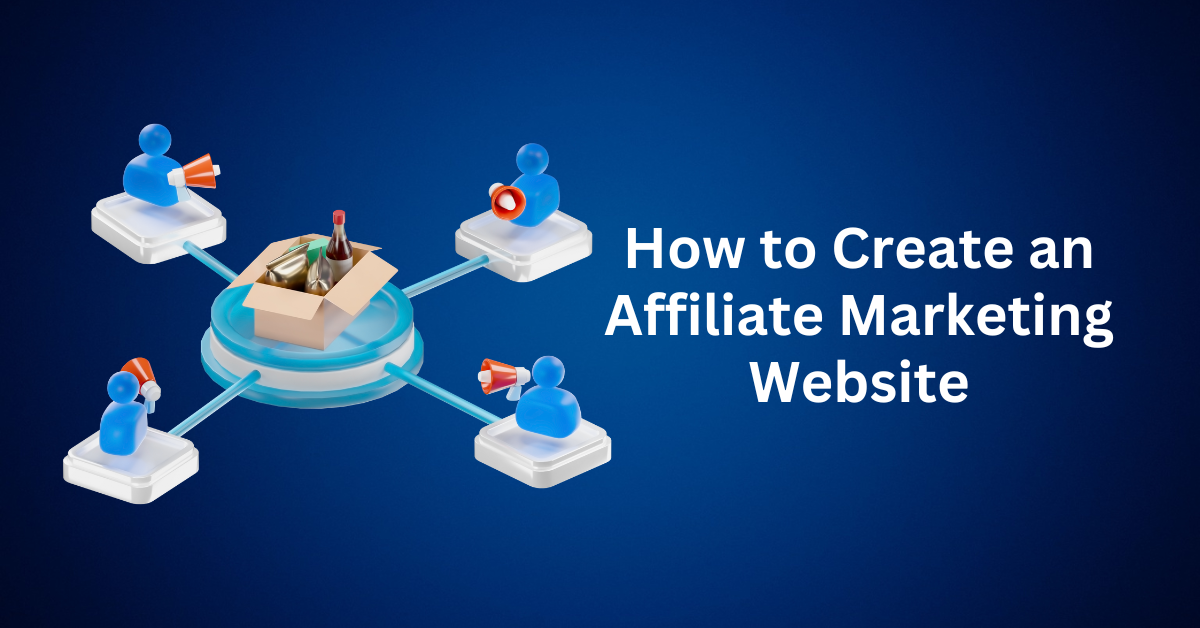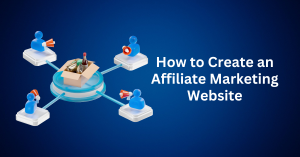You’ve built your website, polished your design, and crafted engaging content. But here’s the real question: if your site isn’t ranking on the first page of Google, how many people will actually find it? Having a website is just step one in your digital strategy. The real game begins when you start convincing search engines and real people that your site deserves to be seen, trusted, and shared. That’s where off-page SEO comes in.
Think of off-page SEO as your website’s online reputation builder. Just like word-of-mouth shapes how people perceive a business, off-page optimization shapes how Google and other search engines perceive your authority and trustworthiness across the web.
In this guide, you’ll discover a complete off-page SEO checklist designed to strengthen your site’s credibility, attract high-quality backlinks, and amplify your visibility. By following these steps, you’ll gradually build a strong digital presence that stands out in search results.
So, let’s dive in and start turning your website into the go-to authority in your niche.

Table of Contents
ToggleWhat Is Off-Page SEO?
Off-page SEO encompasses all the strategies and actions you take beyond your website to improve its credibility, visibility, and authority in search engines. In essence, these external efforts signal to Google that your site is trustworthy and valuable—two key factors that help you rank higher in search results.
Some of the most effective off-page SEO techniques include:
- Earning backlinks from reputable, high-authority websites
- Securing brand mentions on blogs, forums, and digital media
- Driving engagement through social media shares and interactions
- Collaborating with influencers or publishing guest posts on relevant sites
- Collecting positive reviews and maintaining consistent business citations
While on-page SEO focuses on optimizing your site’s structure and content, off-page SEO, on the other hand, builds credibility through external validation. In other words, when other trusted websites and voices recognize your brand, it sends a clear and powerful message to Google:
“This website provides real value—and people trust it.”
Why Off-Page SEO Still Matters
Improving your search rankings is no longer just about keywords or technical optimization. It’s about building a digital reputation that signals expertise, authority, and trustworthiness, or what Google calls E-E-A-T:
Experience, Expertise, Authoritativeness, and Trustworthiness.
Modern SEO is relationship-driven. Google’s latest algorithms evaluate how your content is discussed, shared, and cited across the internet. According to First Page Sage, backlinks alone still contribute to around 13% of all ranking factors. But it’s not just about having thousands of links anymore; it’s about quality, context, and credibility.
Here’s how off-page SEO fuels your rankings:
- High-quality backlinks from trusted domains strengthen authority.
- Brand mentions on blogs and news sites enhance visibility.
- Social signals (likes, shares, and engagement) show relevance.
- Positive reviews and PR coverage build brand trust.
- Technical health and backlink diversity prevent negative SEO impact.
Together, these off-site efforts show search engines that your content is credible, valuable, and endorsed by experts, the exact signals Google rewards with higher rankings.
The Benefits of a Strong Off-Page SEO Strategy
When done right, off-page SEO can deliver measurable, long-term results:
- Higher search rankings across competitive keywords
- Increased organic traffic and referral visits
- Stronger brand presence on multiple online channels
- Natural link growth that compounds over time
- More trust and conversions from users who recognize your brand
In short, off-page SEO is the missing puzzle piece between having a good website and owning your niche online.
5 Off-Page SEO Quick Wins You Can Implement Today
If you’re just getting started, these simple but effective actions can give your off-page SEO an instant boost:
- Pitch one guest post each week to relevant blogs in your niche.
- Set up Google Alerts to track brand mentions and new backlinks.
- Share every new blog post on at least three platforms. Facebook, LinkedIn, X, or Pinterest.
- Repurpose one blog post into a LinkedIn article or short-form video.
- Monitor backlinks using tools like Ahrefs, Semrush, or Google Search Console.
Small, consistent actions like these build authority steadily and organically, without needing to chase algorithms or spammy link exchanges.
Off-Page SEO Checklist: 10 Proven Strategies to Build Authority and Boost Rankings
Ready to elevate your website’s credibility and climb the search rankings?
This off-page SEO checklist covers the most effective strategies to strengthen your brand reputation, improve domain authority, and drive consistent traffic.
By applying these proven off-page SEO techniques, you’ll not only improve your visibility but also establish your brand as a trusted and authoritative source in your niche.
Let’s dive into the essential checklist for mastering off-page optimization.
1. Build High-Quality Backlinks from Authoritative Sources
Backlinks remain the strongest ranking signal in Google’s algorithm. Each backlink acts as a vote of confidence, telling search engines that your content is valuable, trustworthy, and worth ranking higher.
What Makes a Quality Backlink?
- Relevance: Comes from a site related to your niche or topic.
- Authority: Published on a domain with strong credibility (DA 50+).
- Natural placement: Added contextually within content, not forced or spammy.
Types of Backlinks:
- Natural links: Earned when others genuinely find and reference your content.
- Built links: Created through outreach, guest posts, or partnerships.
Avoid: Broken or irrelevant links; they dilute your link equity and can lower your site’s SEO value.
How to Earn Powerful Backlinks:
a. Create link-worthy content: To begin with, focus on publishing original studies, in-depth guides, or data-backed posts. For example, a detailed article like “The 2025 Page Speed Study: How Load Time Impacts Conversion Rates” is far more likely to earn citations from reputable industry sites. Consequently, this type of content positions your website as a credible authority within your niche.
b. Contribute guest posts: Next, expand your reach by contributing guest posts. Start by reaching out to relevant, high-authority blogs and pitching content that provides genuine value to their readers. In doing so, you can include a natural backlink to your website or resource page, which helps strengthen your off-page SEO efforts.
c. Try broken link building: In addition, consider using a broken link-building strategy. With tools like Ahrefs, Semrush, or Check My Links, you can easily identify outdated or dead links on authoritative websites. Then, offer your own content as a replacement—creating a win-win situation that helps both you and the site owner maintain valuable user experiences.
d. Collaborate through co-marketing: Furthermore, explore co-marketing opportunities. Partner with complementary brands or influencers to co-create eBooks, webinars, or listicles. As a result, these collaborations naturally generate multiple backlinks from credible domains, further enhancing your site’s visibility and trustworthiness.
Pro Tip: Finally, streamline your efforts with hosting providers like Bluehost, which offer integrated SEO tools and plugins to help manage backlinks efficiently. Their eCommerce Essentials solution includes built-in optimization features that enhance link-building strategies and steadily improve your site’s domain authority over time.
2. Maximize Social Media Marketing for SEO Signals
Social media isn’t just for engagement. It’s a critical off-page SEO tool. When people share and discuss your content, search engines interpret these as signs of relevance and popularity.
By staying active on platforms like Facebook, LinkedIn, X (Twitter), Instagram, and Pinterest, you can increase brand visibility, generate referral traffic, and attract natural backlinks.
How to Boost Social Engagement:
a. Post consistently with value-driven content: To start, make it a habit to post regularly while focusing on content that delivers genuine value. Share SEO tips, data snippets, or engaging visuals that both educate and entertain your audience. For instance, a short “30-second SEO hack” reel can easily go viral and attract highly qualified traffic to your blog.
b. Repurpose your blog content: Next, don’t let your best blog posts gather dust—repurpose them into new, attention-grabbing formats. You can transform long-form articles into infographics, carousel posts, or short-form videos. By doing so, your content continues to circulate across multiple platforms, extending its reach and lifespan.
c. Tailor content to each platform: In addition, remember that not all social networks serve the same purpose. Use LinkedIn for sharing professional insights and thought leadership, Instagram for visual storytelling, and Twitter (X) for quick, bite-sized SEO updates. This way, you ensure each piece of content connects effectively with the unique audience on that platform.
d. Encourage interaction: Moreover, boost your engagement by encouraging direct interaction. Include clear calls-to-action (CTAs) such as “Save this post,” “Tag a friend,” or “Share your thoughts.” These small prompts inspire audience participation—strong engagement signals that can significantly enhance your brand’s online presence.
Bonus Tip: Finally, streamline your workflow with a hosting provider that offers integrated social sharing tools. For example, Bluehost’s editor features allow you to manage content creation and cross-platform sharing effortlessly—all from one place.
3. Engage in Niche Communities to Build Trust and Credibility
Online communities are one of the most underrated but powerful off-page SEO channels.
By contributing to discussions on Reddit, Quora, or industry-specific forums, you can build credibility, attract backlinks, and increase brand mention, all vital signals that search engines track.
Steps to Succeed in Niche Communities:
a. Join relevant groups and forums: To begin with, become active in online spaces where your target audience and peers gather. If you’re in the hosting or website optimization niche, join platforms like the WordPress Forum or related Facebook groups. By consistently providing insights, answering questions, and helping others, you’ll gradually establish your reputation as an industry expert.
b. Add value before you link: Next, prioritize value over promotion. Focus on giving genuinely helpful answers, sharing useful advice, and building credibility first. Only include your link when it naturally complements your response. For example, if someone asks about improving page load speed, you could share a practical solution and link to your detailed post on WordPress performance optimization for additional context.
c. Stay consistent and human: Furthermore, maintain consistency in your participation. Engage regularly using your brand profile, but avoid sounding overly promotional. Instead, focus on sharing experience-backed insights such as, “We tested this strategy and saw a 20% increase in organic traffic.” This human, relatable tone builds trust and encourages authentic interaction.
d. Mention your brand naturally: Finally, weave your brand mentions organically into conversations. When your input adds value, others are more likely to reference or tag your brand without prompting. Over time, these genuine interactions lead to organic mentions and backlinks—both of which significantly enhance your off-page SEO performance.
Pro Tip: Make your shared content click-worthy and readable. This is where tools like Yoast SEO (integrated with Bluehost) can help:
- Optimize your meta titles and descriptions for better visibility
- Improve readability scores for user engagement
- Generate enhanced link previews for social media
- Encourage higher CTRs (click-through rates)
The result? More clicks, more shares, and a higher chance of earning backlinks from other trusted sources.
4. Leverage Brand Mentions and Citations to Build Trust
When people talk about your brand online, even without linking directly to your website, those unlinked brand mentions still send powerful trust signals to Google. These are known as implied links, and they play a significant role in helping search engines evaluate your site’s relevance, reputation, and authority.
Every mention of your brand, product, or service across the web, whether in a blog post, review, or news article, tells Google that your business is part of the conversation in your industry.
Smart Ways to Gain More Brand Mentions
a. Get featured in expert roundups and interviews: Reach out to bloggers, journalists, and digital publications within your niche. Offer valuable insights or quotes for their upcoming content. For instance, a digital marketing consultant might contribute tips to a “Top 10 SEO Tools” article and earn both visibility and credibility.
b. Use HARO (Help a Reporter Out): Platforms like HARO or SourceBottle connect brands with journalists who are actively seeking expert insights and credible sources. By responding to relevant queries, you can get featured or cited in media stories, interviews, or articles. This approach not only helps you build industry authority but also earns natural mentions and backlinks from trusted news outlets, strengthening your overall off-page SEO profile.
c. Run PR or social campaigns: Launch something newsworthy, a giveaway, a survey, or a product study. For example, releasing a “SEO Benchmark Report” could attract press mentions and backlinks from niche websites and media outlets.
d. Monitor mentions across the web: Use Google Alerts, Semrush Brand Monitoring, or Brand24 to track every time your brand appears online, even when not linked. These tools allow you to identify potential link opportunities and engage with publishers to request a backlink where appropriate.
Pro Tip: While backlinks remain essential, unlinked mentions still hold SEO value. Google’s algorithm can interpret these as indicators of real-world authority, especially when they appear on trusted sites or are associated with relevant industry keywords.
How to Maximize the SEO Value of Brand Mentions
- Set up mention alerts to identify opportunities fast.
- Encourage journalists or bloggers to include your brand in their stories.
- Launch mini PR campaigns or community initiatives to increase exposure.
- Track performance using SEO dashboards or analytics tools.
With hosting solutions like Bluehost, you can seamlessly integrate SEO tracking tools directly into your dashboard. As a result, you can monitor brand citations, backlinks, and reputation growth all in one place—without juggling multiple platforms. This streamlined approach keeps your off-page SEO strategy organized, efficient, and easy to manage.
5. Collaborate with Influencers to Expand Reach and Earn Backlinks
Influencer marketing has evolved far beyond social media promotion. It’s now a powerful off-page SEO strategy that helps brands earn backlinks, referral traffic, and long-term credibility.
When you collaborate with influencers who align with your niche, you tap into pre-built trust and established communities that already value their opinions. This creates an authentic bridge between their audience and your brand.
How to Execute Effective Influencer Collaborations
a. Choose the right influencers: To begin with, focus on finding influencers who truly align with your brand rather than simply chasing large follower counts. Relevance always outweighs reach. For instance, a skincare brand will gain far more credibility by collaborating with a dermatologist or niche beauty blogger than with a general lifestyle influencer. The right partnership ensures your message reaches a genuinely interested audience.
b. Go beyond shoutouts: Next, move past simple shoutouts or one-time mentions. Instead, co-create meaningful content that provides real value to your shared audience—such as blog posts, webinars, YouTube tutorials, or Instagram Reels. This approach builds long-term trust and visibility. Don’t forget to include a natural backlink to your website within the content description or blog reference to strengthen your SEO impact.
c. Offer mutual value: In addition, make every collaboration worthwhile for both parties. Offer influencers early access to new products, exclusive deals, or affiliate partnerships that reward them for authentic promotion. When influencers feel appreciated and fairly compensated, they’re far more likely to advocate for your brand with genuine enthusiasm.
d. Measure results: Finally, evaluate the effectiveness of your influencer collaborations. Use analytics tools like Google Analytics, Ahrefs, or Bluehost’s SEO Checker to track referral traffic, monitor new backlinks, and measure engagement generated from each campaign. By analyzing these insights, you can determine which partnerships deliver the best return on investment (ROI) and refine your future strategy accordingly.
Pro Tip: Use customizable landing page templates or video embeds within your WordPress site (such as those available via Bluehost) to seamlessly align influencer content with your brand’s design and SEO goals.
6. Repurpose and Syndicate Content for Maximum Visibility
You don’t need to create brand-new content every week to grow your online presence.
Instead, focus on repurposing and syndicating your best-performing content across high-traffic platforms. This allows you to reach new audiences, earn backlinks, and reinforce your brand authority, all without starting from scratch.
How to Effectively Syndicate and Repurpose Content
a. Use trusted syndication platforms: To start, leverage reputable syndication platforms to extend your content’s reach. Repost your blog articles on Medium, LinkedIn Articles, or GrowthHackers to connect with new audiences beyond your website. However, be sure to include canonical tags (or rel=canonical links) so that Google recognizes your original post as the primary source—helping you avoid any duplicate content issues.
b. Pitch content to niche publications: Next, take your reach even further by repurposing your content for niche media outlets. Transform existing blog articles into press releases or guest features for targeted industry publications. For example, a tech startup could adapt a blog post into a press release for TechCrunch, VentureBeat, or Hacker News, earning high-authority citations and valuable brand mentions in the process.
c. Share company updates and milestones: In addition, keep your audience informed by promoting key updates and achievements. Announce new product launches, award wins, or partnerships through press release distribution platforms like PRWeb or Business Wire. These announcements are often syndicated across hundreds of news outlets, instantly boosting your visibility while creating strong backlink opportunities.
d. Monitor and measure impact: Finally, evaluate the effectiveness of your syndication strategy. Track metrics such as referral traffic, engagement, and backlinks generated from each platform. By using SEO tools to identify which channels deliver the most visibility and authority, you can refine your syndication efforts for even stronger results over time.
Why Syndication Works
- Expands content reach beyond your core website
- Builds backlinks from authoritative sources
- Strengthens your brand’s visibility in search results
- Reinforces domain authority and topical expertise
Pro Tip: Platforms like Bluehost’s WordPress CMS simplify this process with SEO-friendly plugins, metadata optimization, and social integrations. You can syndicate content directly while maintaining full control of your SEO structure, ensuring your content performs well across every platform it’s shared on.
7. Harness the Power of Customer Reviews and Testimonials
Customer reviews are one of the most powerful trust signals in digital marketing and a crucial factor in off-page SEO, especially for local businesses. When real people talk about your brand, they create authentic social proof that search engines notice.
Why Reviews Matter for SEO
Reviews don’t just influence buying decisions; they also impact Google’s local ranking factors. More high-quality reviews signal reliability and authority, helping your business appear in Google Maps, “near me” searches, and the local 3-pack.

For example, a bakery with 100+ Google reviews is far more likely to rank for keywords like “best cupcakes near me” than one with just a handful.
Smart Ways to Maximize Reviews
a. Encourage reviews on trusted platforms: To begin, focus on gathering customer feedback from credible sources such as Google, Yelp, and Trustpilot. Each new review not only builds social proof but also adds keyword-rich content to your listings. As a result, your business becomes more visible in search results and more trustworthy to potential customers.
b. Showcase testimonials on your website: Next, make the most of your positive reviews by displaying them prominently on your site. Embed authentic customer testimonials using widgets or plugins on your homepage, product pages, or landing pages. Doing so can boost your conversion rates by up to 34% while reinforcing your brand’s credibility and reliability.
c. Respond to every review—good or bad: In addition, always take the time to respond to customer feedback. Acknowledging both positive and negative reviews demonstrates that you genuinely value your customers’ experiences. Moreover, Google interprets this engagement as a signal of trust and responsiveness, which can positively influence your SEO performance.
d. Automate review requests: Finally, streamline the review-gathering process with automation. Set up email or SMS follow-ups after purchases to politely encourage satisfied customers to share their experiences. This proactive approach helps you maintain a steady flow of fresh reviews—without being intrusive—keeping your brand reputation strong and consistent.
Pro Tip: With Bluehost eCommerce Essentials, you can easily showcase verified customer testimonials on your WordPress site using customizable widgets. By doing so, you can highlight star ratings, quotes, and authentic user experiences that build trust, boost credibility, and keep visitors engaged on your page longer.
8. Increase Branded Searches to Strengthen Authority
Branded search volume when users look up your business name directly has become one of the most influential SEO signals. The more people search for your brand, the more Google interprets it as a trusted authority in your niche.
How to Encourage More Branded Searches
a. Run brand awareness campaigns: To start, focus on building recognition through targeted brand awareness campaigns. Leverage social media ads, YouTube videos, or influencer collaborations to promote your brand name to the right audience. For instance, a local coffee shop could run engaging Instagram video ads highlighting their signature cold brew, encouraging viewers to search for it by name. This type of exposure not only boosts brand visibility but also drives direct search traffic over time.
b. Create memorable, shareable content: Next, aim to develop content that sticks in people’s minds and inspires them to share. Produce educational blog posts, viral videos, or branded challenges that naturally spread across platforms. Every share introduces your brand to new audiences who may later remember and search for it directly—an organic way to strengthen your brand presence.
c. Maintain consistent branding: In addition, ensure that your brand identity remains uniform across every touchpoint. Keep your brand name, logo, tagline, and color palette consistent on your website, social media, and advertising materials. This consistency helps Google associate all mentions with your domain, reinforcing your authority and improving brand recognition both online and offline.
d. Engage your community: Finally, nurture relationships with your audience through meaningful engagement. Respond to comments, host giveaways, and encourage user-generated content that features your brand. The more people interact with your business, the stronger their recall becomes—making them far more likely to search for your brand name directly in the future.
SEO Insight: More branded searches = higher click-through rates, better rankings, and stronger overall domain authority.
9. Optimize for Local Citations to Dominate Local Search
If your business serves a specific city or region, local citations—which list your business’s Name, Address, and Phone number (NAP)—are essential for local SEO success. In fact, Google relies on these consistent signals to verify your business’s legitimacy and physical location. By ensuring accuracy across all directories, you strengthen your local visibility and make it easier for nearby customers to find and trust your brand.
Steps to Improve Your Local Citations
a. Submit your business to reputable directories: To begin, ensure your business is listed on trusted directories such as Google Business Profile, Yelp, TripAdvisor, and Bing Places. These platforms help customers find you easily while boosting your local SEO visibility. Just make sure your NAP (Name, Address, and Phone number) information is consistent across all listings—since even small discrepancies can confuse Google’s algorithm and weaken your rankings.
b. Target niche or regional directories: Next, go beyond the general directories and focus on niche or location-specific platforms. For example, if you run a restaurant in Kuala Lumpur, consider submitting your business to local food blogs, city-based directories, or Malaysian tourism websites. These hyperlocal citations carry greater relevance and SEO authority, helping you connect directly with nearby customers searching for your services.
c. Encourage user-generated local mentions: In addition, boost your local visibility by encouraging authentic community engagement. Reach out to local bloggers, media outlets, or influencers who can feature your business in their content. You can also invite satisfied customers to mention your brand in social media posts, Facebook groups, or community forums. These user-generated mentions act as modern word-of-mouth, strengthening both credibility and local SEO.
d. Keep information updated: Finally, don’t set it and forget it—regularly audit your business listings for accuracy. Outdated phone numbers, addresses, or website links can confuse potential customers and reduce your search visibility. By keeping your information up to date, you maintain trust, enhance user experience, and ensure Google continues to rank your business confidently in local searches.
Pro Tip: Consistency is everything. Aligning your NAP data across the web signals to Google that your business is real, reliable, and active, boosting your chances of ranking in “near me” searches and local map results.
10. Monitor and Improve Your Off-Page Optimization
Off-page SEO isn’t a one-time effort. Instead, it’s an ongoing strategy that requires consistent tracking and refinement. By monitoring key metrics, you can understand which tactics drive results and where to focus next.
Key Off-Page SEO Metrics to Track
- Backlinks: Number, quality, and referring domains
- Social mentions and shares: Indicators of brand engagement
- Referral traffic: Which external sources send visitors
- Branded search volume: Direct search visibility over time
Best Tools to Track Your SEO Performance
| Tool | Key Features |
| Bluehost SEO Checker | All-in-one WordPress-friendly tool for monitoring backlinks, mentions, and real-time insights. |
| Ahrefs | Comprehensive backlink and competitor analysis. |
| Semrush | Monitors brand mentions, audits backlinks, and tracks off-page trends. |
| Moz | Tracks domain authority and link-building opportunities. |
| BuzzSumo | Identifies high-performing content and outreach targets. |
| Google Alerts | Sends notifications for new mentions or citations. |
| Google Search Console | Offers detailed backlink and referring domain data. |
How to Continuously Improve
- Identify which sites are linking to you most frequently.
- Build more relationships with high-authority domains.
- Regularly update disavow files to remove toxic backlinks.
- Use analytics to measure traffic and conversion sources.
SEO Tip: Off-page optimization works best when paired with a strong on-page foundation. Build a fast, mobile-friendly website, optimize metadata, and publish valuable content regularly. These amplify the impact of your external SEO efforts.
Off-Page SEO vs On-Page SEO: What’s the Real Difference?
To build a winning SEO strategy, you need both sides of the equation: on-page SEO and off-page SEO. While they serve different purposes, they work hand in hand to improve your website’s visibility, trust, and ranking potential.
| Aspect | On-Page SEO | Off-Page SEO |
| Focus Area | Everything you can optimize within your website. Content, structure, and performance. | All activities that happen outside your site to build authority and reputation. |
| Key Elements | Meta titles and descriptions, header tags, keyword optimization, image alt text, internal linking, mobile responsiveness, and site speed. | Backlinks, brand mentions, influencer collaborations, social shares, online reviews, and PR campaigns. |
| Primary Goal | Make your website search-engine-friendly and relevant for target keywords. | Strengthen your domain authority, credibility, and trust across the web. |
| Common Tools | Yoast SEO, Rank Math, schema markup tools, and Google PageSpeed Insights. | Ahrefs, Semrush, Moz, Google Alerts, and backlink monitoring platforms. |
| Main Impact | Improves content quality, crawlability, and user experience. | Expands visibility, generates referral traffic, and builds online authority. |
Why You Need Both
Think of on-page SEO as the foundation. It ensures your content is well-structured, fast-loading, and keyword-optimized. Without it, search engines may not understand or prioritize your pages.
Off-page SEO, on the other hand, acts like your reputation in the digital world. It tells Google that other websites trust and endorse your content through backlinks, mentions, and engagement signals.
When these two strategies align, you create a powerful synergy:
- On-page SEO attracts search engines.
- Off-page SEO convinces them you’re worth ranking.
Together, they help your site climb search results, attract qualified visitors, and build long-term brand authority.
Pro Tip: Use an integrated platform like Bluehost WordPress hosting to manage both on-page and off-page SEO seamlessly. You can optimize metadata, monitor backlinks, and track keyword rankings, all from a single dashboard.
Common Off-Page SEO Mistakes to Avoid (and What to Do Instead)
Even the most well-planned off-page SEO strategies can backfire if you’re unknowingly making mistakes that hurt your site’s credibility and rankings. Search engines today are smarter than ever. They can distinguish between genuine authority-building efforts and manipulative shortcuts.
To protect your site’s reputation and make the most of your off-page SEO campaigns, here are the most common mistakes to avoid and how to fix them.
1. Prioritizing Quantity Over Quality in Backlinks
It’s tempting to chase a high number of backlinks, but not all links are created equal. Earning dozens of links from low-quality, irrelevant, or spammy sites can do more harm than good and even lead to Google penalties.
The fix: Focus on quality over quantity. Build backlinks from trustworthy, industry-relevant websites with real traffic and strong domain authority. A single link from a reputable site (like Forbes, HubSpot, or an authoritative niche blog) carries far more SEO value than dozens of random directory links.
Pro Tip: Use tools like Ahrefs or Semrush to evaluate domain quality before pursuing a backlink opportunity.
2. Overusing Keyword-Rich Anchor Text
Using the same keyword-heavy anchor text repeatedly (like “best SEO tools” or “cheap hosting Malaysia”) sends a clear spam signal to Google. Over time, it starts to look unnatural and can even trigger ranking penalties.
To fix this issue, diversify your anchor text. In other words, mix branded, generic, and partial-match keywords to make your link profile appear more organic. For example:
- Branded: Bluehost SEO Tools
- Generic: Read more here
- Partial match: SEO strategies for beginners
By doing so, you’ll not only keep your link profile safe from penalties but also enhance the overall user experience, making your content appear more trustworthy and balanced.
3. Ignoring Social Media Engagement
Some marketers overlook social media because they think it doesn’t directly impact search rankings. That’s a big mistake. While social signals (likes, shares, comments) may not be a core ranking factor, they indirectly influence your SEO through increased visibility, engagement, and brand authority.
The fix: Stay active on the platforms that matter most to your audience, whether that’s LinkedIn, Instagram, or Facebook. Share your content, interact with followers, and join discussions in your niche. Each social mention and share expands your digital footprint, which helps search engines recognize your brand’s relevance.
4. Skipping Competitor Analysis
If you’re not watching what your competitors are doing, you’re missing out on major growth opportunities. After all, competitor backlink analysis helps you uncover new link-building prospects, fresh content ideas, and emerging industry trends.
To fix this, make it a habit to regularly analyze your top-ranking competitors’ backlink profiles using tools like Moz Link Explorer or Ahrefs. Start by identifying:
- Which websites are linking to them
- What type of content earns the most backlinks
- Which keywords drive referral traffic
Once you have this information, adapt their successful strategies to your own brand—but with your unique twist—so you can stand out while staying competitive.
5. Failing to Track and Measure Progress
Off-page SEO isn’t a “set it and forget it” process. In fact, without consistent tracking, you’ll never truly know which efforts are driving results—or which factors might be holding you back.
To stay ahead, make it a habit to monitor your backlinks, brand mentions, referral traffic, and keyword rankings on a weekly basis. Fortunately, tools like Bluehost SEO Checker, Google Search Console, and Semrush provide clear insights into your off-page performance. With these insights, you can analyze what’s working and what’s not. As a result, you’ll be able to refine your outreach strategy, strengthen key relationships, and double down on the tactics that deliver real impact.
Final Thoughts: Strengthen Your Brand with Smart Off-Page SEO
Building your website’s authority doesn’t happen overnight. Instead, it’s a long-term investment that requires consistent, strategic effort. Off-page SEO is about more than just backlinks; it’s about creating a strong digital reputation that search engines and users trust. Every mention, share, and link to your site contributes to that trust and improves your visibility in search results.
When you focus on earning high-quality backlinks, securing brand mentions on reputable sites, and maintaining an active presence on social media, you naturally boost your site’s credibility. Combine these efforts with valuable, shareable content and authentic engagement, and your off-page strategy becomes a powerful driver of organic growth.
A well-structured off-page SEO checklist is essential for keeping your strategy organized and effective. From link-building and outreach to tracking referral traffic and analyzing your backlink profile, it helps you stay focused on what matters most. Moreover, by monitoring your progress regularly, you can measure results more accurately and refine your approach for even stronger performance over time.
If you’re ready to elevate your online visibility, look no further than Bluehost eCommerce Essentials—it offers everything you need to make it happen. With its built-in tools, including SEO analytics, backlink tracking, and link management features, you can easily monitor CTRs, fix broken links, and strengthen your internal link structure. Best of all, you can manage everything from one convenient dashboard, saving time while optimizing your site’s performance.
Ultimately, the right tools make all the difference.
So, take your off-page SEO to the next level—optimize smarter, rank faster, and grow your online authority with Bluehost today.







